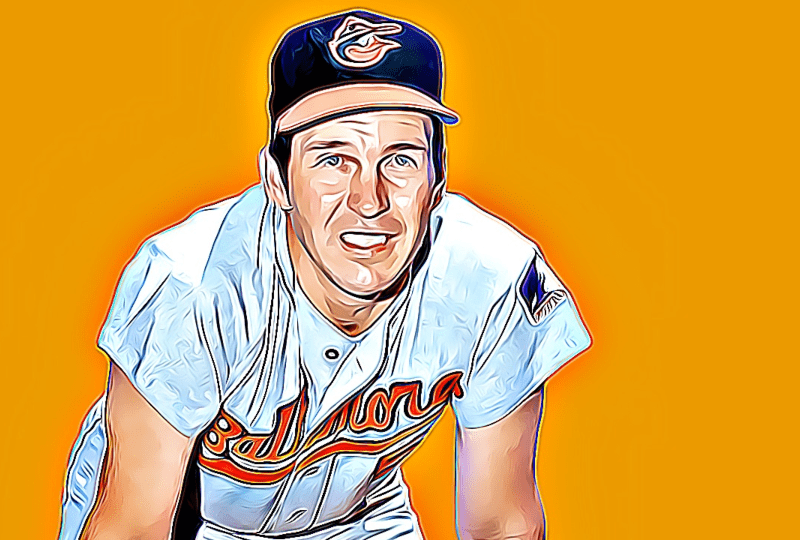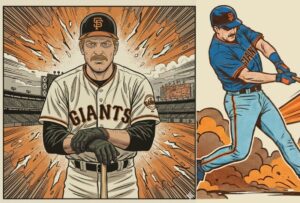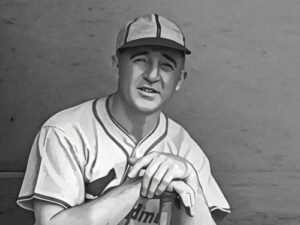It’s possible that no other position player has ever dominated a World Series to the extent Brooks Robinson did in 1970. That October, Robinson was dazzling in the field and at the plate as the Baltimore Orioles defeated Cincinnati in the Fall Classic.
Brooks Calbert Robinson Jr. was beloved and appreciated in all parts of Maryland by 1970. But the country, the baseball world, wasn’t aware of his brilliance. The 1970 Series wasn’t that old when Robinson started to show off.
In the sixth inning of Game One, Robinson darted to his right and snared a sharp grounder off the bat of Lee May. The Baltimore third baseman, three or four feet in foul territory, fired a bullet to first base to get May. The next inning, Robinson smacked a home run to deep left field to break a 3-3 tie. His homer proved to be the margin in a 4-3 Baltimore win.
Here’s the play from Game One, where Robinson robbed Lee May:
The next day, Robinson snared a liner off the bat of May (again) and started a double play to end the third inning. In the fifth, Robinson singled in the tying run and scored the go-ahead run. In Game Three, Robinson doubled in a pair of runs in the first inning, pacing the O’s to a 9-3 victory. In the sixth inning, Brooks was at it again: robbing Johnny Bench of a hit to left field when he dove to his left.
“That was an illusion,” Pete Rose said after the game. “I saw that ball bouncing down the line for a hit, but when I blinked, [Robinson] had it in his glove.
“I’ve never seen anything like him in my life,” Rose said. He joked to his teammates that if he knew Robinson wanted a car so badly (the MVP of the World Series traditionally receives an automobile), he and Bench (who shared ownership in a Cincinnati car dealership) would have gifted him one.
When Robinson came to the plate later in Game Three and he waited while the Reds made a pitching change, he and Bench talked. “I’m going to hit it over your head next time,” Bench joked. Robinson just nodded his head and smiled.
“I know it sounds corny,” Reds manager Sparky Anderson told a crowd of reporters in the clubhouse, “but I have to go back to Brooks Robinson again. He did it to us in all three games. Now he’s starting to beat us with his bat.”
Buoyed by his success, Robinson exploded in Game Four with four hits, including his second homer of the Fall Classic. Despite his heroics with the bat, the Reds achieved what would be their only victory of the series.
Game Five was played at Memorial Stadium in Baltimore, and the Orioles won handily by the score of 9-3. Robinson had a single, his ninth hit of the series, which led both teams. In the ninth, as if stamping his greatness with an exclamation point, the third baseman dove toward the foul line to grab a line shot off the bat of Bench, easily throwing the Cincinnati catcher out at first. A moment later, Robinson handled the final chance of the series, getting the last out.
“I never played with more focus in my career,” Robinson said years later when he looked back on the magical 1970 World Series. He went on to play 23 seasons, all with the Orioles. Robinson won his first Gold Glove when he was 23, and his last when he was 38. He earned 16 Gold Gloves in all during his Hall of Fame career. But the 1970 Series remained his crowning achievement during his playing career.
“This is the best series I’ve played,” Robinson told reporters after Game Three in Cincinnati. “But I don’t know about the best play.”
Predictably, Robinson was named Most Valuable Player of the 1970 World Series, an honor he called “the greatest thing that ever happened to me.”
Asked if he could ever be surprised by Robinson’s defensive play, teammate Davey Johnson told reporters after Game Two, “You should have seen him five years ago.” When Cincinnati manager Sparky Anderson was told what Johnson said, he replied “If he was better five years ago, they must not have needed a shortstop.”
“Brooks Robinson beat us,” Anderson said after the Reds were put to rest in Game Five.






